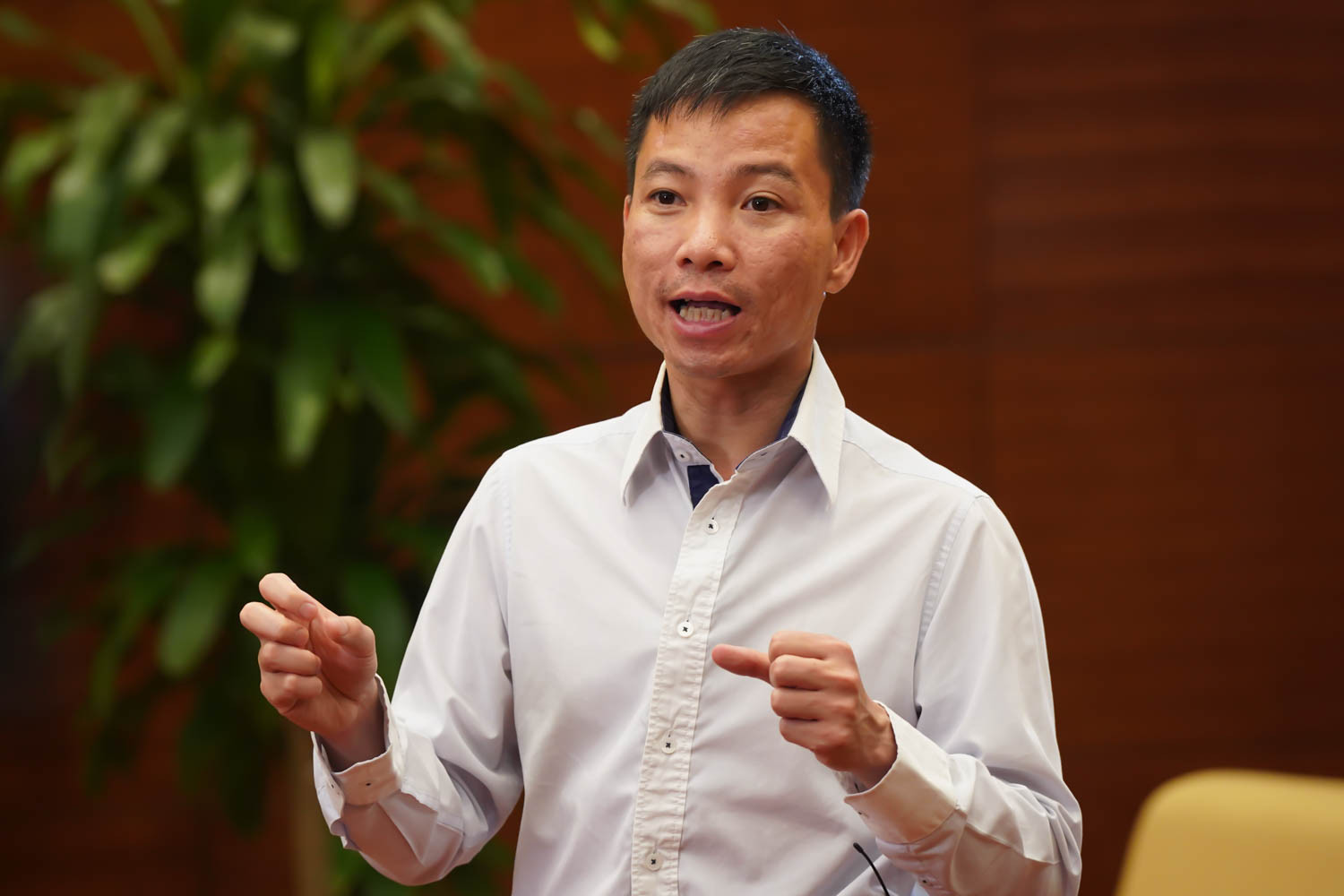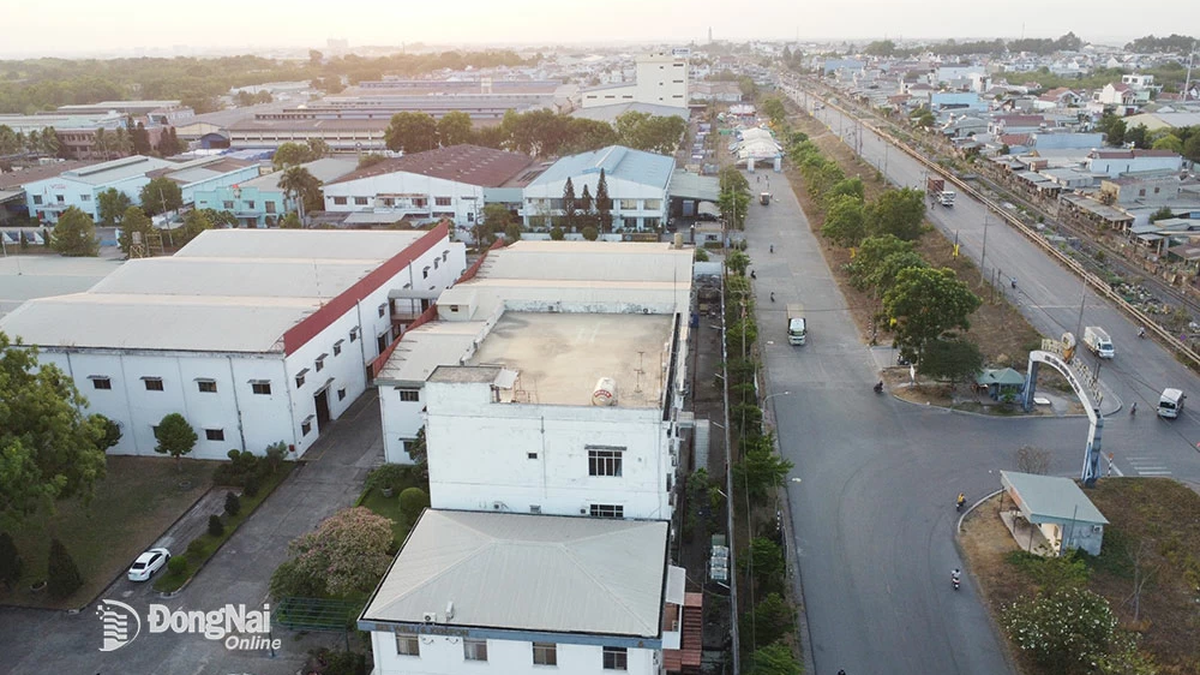Dr. Le Viet Quoc, a Vietnamese AI scientist , is known for his pioneering role in the field of deep learning at Google. His groundbreaking research has contributed to bringing artificial intelligence to practical applications such as natural language processing and computer vision.
At the International Conference on Artificial Intelligence and Semiconductors (AISC) 2025, Dr. Le Viet Quoc shared his perspective on investment strategies for developing the semiconductor and AI fields.
How do you evaluate the view that this is a historic opportunity for Vietnam to develop semiconductor technology and artificial intelligence?
Dr. Le Viet Quoc: I agree with the statement that this is a great opportunity. The opportunity is ripe when it is not too early and not too late. For example, making phones now is too late, because people have been doing it for many years. Meanwhile, technologies such as AI and chips are still new and have a lot of potential.
Vietnam's advantage is its good human resources. Everything needs good people. Building the pyramids, going to the moon and now creating AI... all thanks to people. Meanwhile, Vietnam has human resources, STEM is the strength of Vietnamese people.

Looking around Asia, the countries that compete with Vietnam in terms of human resources are Singapore, India, and China. Singapore does not have as many human resources as Vietnam. China has its own problems as it is directly confronting the US. The only major competitor with Vietnam is India. If we can take advantage of this opportunity to change our human potential, we can join the “game” of AI and semiconductors.
With a good existing foundation, Vietnam needs to further strengthen it by improving the quality of university and postgraduateeducation and developing research institutes to create a "playground" for domestic talents.
With the existing challenges, what policies should Vietnam have to participate in this "game"?
In my opinion, the semiconductor industry requires a lot of resources, even costing billions of dollars if it develops towards chip production. Meanwhile, if it produces cheap chips, it will be very difficult when Vietnam has to face competition from many countries.
If having to choose between AI and chips, it is better to invest more in AI, because in terms of resources, AI requires less, moreover, AI technology still has a long way to go for Vietnam to catch up and surpass.
For semiconductors, Vietnam should do chip design instead of chip manufacturing. Chip design brings in more profit and is also more suitable for Vietnam's available resources and manpower.
Where should we focus if we want to accelerate the development of artificial intelligence?
My advice after a long journey is not to rush. If a company were to follow DeepSeek, by the time they catch up, they would have come a long way.
Vietnam should focus on new directions with more innovation. For example, using AI to design chips, which is a new branch of AI, and is related to semiconductors.
If you do it in the chatbot style, you should focus on areas that can be innovated. Specifically, platform models have many weaknesses. If you know these weaknesses and focus on new ideas to change, Vietnamese businesses will be able to surpass other companies.

Does Vietnam have the advantage of a latecomer, standing on the shoulders of giants?
Being in front has its advantages, but being behind has its advantages too. For example, many marathon runners run behind to avoid the wind. The runner can also learn from the mistakes of the runner.
Open AI’s ChatGPT and Google’s Gemini have a lot of users. The problem these companies face is that with so many users, most of the resources have to serve the users, instead of improving the AI model.
Meanwhile, latecomers do not have to spend resources to serve users but only need to focus on the problem of how to create a comprehensive model. That is the advantage of a latecomer who avoids the wind.
Can Vietnam create products with little investment but high efficiency like DeepSeek?
I think so. The world ’s most popular computer vision, speech processing, and natural language processing (NLP) models are all decreasing in cost very quickly. The first model may cost hundreds of millions of dollars, but the next model only costs 20 million dollars, then another 5 million dollars, and so on. Therefore, it is entirely feasible for Vietnam to create such models.
Thank you!




















































![[Maritime News] More than 80% of global container shipping capacity is in the hands of MSC and major shipping alliances](https://vphoto.vietnam.vn/thumb/402x226/vietnam/resource/IMAGE/2025/7/16/6b4d586c984b4cbf8c5680352b9eaeb0)













































Comment (0)